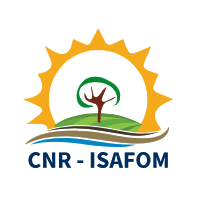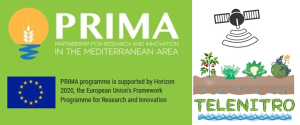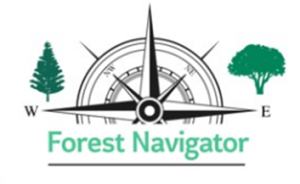International Projects


|
TeleNitro (PRIMA): New low cost crop strategies based on biodiversity and remote sensing to reduce the application of nitrogen fertilisers in the Mediterranean area. Duration: 01 July 2023- 31 December 2026 Fertilisation is an essential practice to obtain the maximum production and quality of the crop harvest. However, the excessive use of nitrogenous fertilisers produces environmental problems related to the accumulation of nitrates in the soil and in the environment, mainly in lagoons, seas, oceans, etc., which trigger a series of problems that affect different society sectors. Mediterranean basin countries such as Spain, Italy, Morocco, and Tunissia have vulnerable areas in terms of the accumulation of nitrates in the environment, so there is a need to develop cultivation strategies that minimise the damage of nitrates in the environment by reducing the amount of nitrogen fertilisers applied on farms. Therefore, the objective of "TeleNitro" project is to reduce nitrogen fertiliser in the crops by the design of a new cultivation strategy to reduce the contribution of nitrogenous fertilisers through the use of plants and/or botanical extracts with the capacity to slow down the transformation of ammonium into nitrate. Plants absorb and assimilate ammonium more effectively than nitrate, and in the environment ammonium pollutes less than nitrate. 081.0624. (int.526)
|
|
ForestNavigator (H2020) ForestNavigator aims at assessing the climate mitigation potential of European forests and forest-based sectors through modelling of policy pathways, consistent with the best standards of LULUCF reporting, and informing the public authorities on the most suitable approach to forest policy and bioeconomy. To reach its ambitious objectives, ForestNavigator will i) harmonize, integrate and continuously update existing datasets by, including national inventories with new remote sensing data and models ii) start from complex forest and climate models and through emulators build them into operational policy modelling tools, iii) integrate biophysical and socio-economic information, iv) consider EU forests and forest bioeconomy in the broader context of other land use and economic sectors, v) rely on input from policy makers and other stakeholders. ForestNavigator aims to assess the climate mitigation potential of European forests and forestry sectors through modelling policy pathways, consistent with the best LULUCF reporting standards, and to inform public authorities on the most appropriate approach to forest policy and the bio-economy. In the field of multiscale forest modelling, the CNR Laboratory of Forest Modelling is responsible for the simulation of the dynamic growth of Mediterranean forests, in the presence of environmental changes and management scenarios, using the 3D-CMCC-FEM forest model. 075 5014541
|
| OptForEU (H2020)
The project OPTimising FOREST management decisions for a low-carbon, climate resilient future in Europe (OptFor-EU) will build a Decision Support System (DSS) to provide forest stakeholders and citizens with tailored options for optimising decarbonisation and other Forest Ecosystem Services (FES) across Europe. Based on exploitation of existing data sources, use of novel Essential Forest Decarbonisation Variables and relationships between climate drivers, forest responses and ecosystem services, OptFor-EU has five specific objectives: (1) Provide an improved characterisation of the forest-climate nexus and FES; (2) Utilise end-user focussed process modelling; (3) Empower forest end-users to make informed decisions to enhance forest resilience and decarbonisation; (4) Provide a novel DSS service; and (5) Achieve measurable gains towards the European Green Deal objectives. The project OPTimising FOREST management decisions for a low-carbon, climate resilient future in Europe (OptFor-EU) aims to build a decision support system (DSS) to provide forest stakeholders and citizens with customised options to optimise decarbonisation and other forest ecosystem services (EES) in Europe. The Laboratory of Forest Modelling is responsible for WP2, which aims to use a combination of forest, land surface and climate models to quantify forest-climate interactions and develop a better representation of forest management practices within land surface and climate models. 075 5014541 |
| SUPERSCIENCEME - Research is your Re-generation
European Research Night 2021 - Green Deal 0984 841423 0984 841427 |
| SUPERSCIENCEME - Research is your Re-generation
European Research Night in Italy - 2022 0984 841423 0984 841427 |
| INNOMED - Innovative options for water resources management in the Mediterranean
Implementation and use of advanced modelling techniques to quantify the physical and economic effects of alternative land management options on the water cycle. 0984 841464 |
| SISAS - Integrated Study for the Environmental Sustainability of Soils
Monitoring the geochemical quality of soils and the colyure on them 0984 841427 |
|
Development of Integrated Web-Based Land Decision Support System Aiming Towards the Implementation of Policies for Agriculture and Environment The LANDSUPPORT project aims at developing a web-based completely free, open-access GeoSpatial Decision Support System (S-DSS) devoted to: 081.0624.27564 |
|
Towards climate-smart sustainable management of agricultural soils The objectives are to develop knowledge, tools and an integrated research community to foster climate-smart sustainable agricultural soil management that:allows sustainable food production;sustains soil biodiversity 0984 841466 |
| Modelling soil functions and soil threats for mapping soil functions and ecosystem services
Assess, analyse and map soil ecosystem services bundles across European agricultural landscapes, highlighting how soil threats affect the supply of services bundles through adoption of a set of site-specific reference thresholds. 081.0624.27564 |
| Efficient, Eco-Friendly, Sustainable Mediterranean Greenhouse Integrated with Artificial Intelligence, Hi-Tech Automation and Control System - acronym SUSMEDHOUSE
The aim of SusMedHouse is to develop a sustainable greenhouse system to enhance the productivity and decrease consumption of resources through self-learning artificial intelligence (AI) with innovative greenhouse applications. To achieve this aim, following objectives will be realised: (1) understanding growers' needs and common greenhouse crop requirements; (2) designing necessary conceptual system and sensor network; (3) developing the AI software; (4) developing user interface; (5) developing a decision support system (DSS); (6) developing innovative biodegradable growth media for cultivation; (7) developing new eco-friendly methods to fight pests and pathogens; (8) demonstrating the system integrity and compatibility on a medium scale greenhouse with AI; (9) optimising solar energy via developing Low-E and solar control coatings; (10) controlling nutrient leakage to prevent eutrophication; (11) testing the established smart greenhouse system on an aquaponic and hydroponic setup. To actualise these objectives, a 2000 m2 greenhouse will be built in Turkey with the following novel technologies carrying out experiments on lettuce, tomatoes and pepper cultivation. Machine learning AI will include greenhouse specialised optimisation mechanisms and sensory network; DSS providing real time data and expected outcomes for actions, pest and pathogen monitoring, early warning system, condition optimiser algorithms, grid and market connected cost calculator; integrated pest and pathogen management owing to image processing and robotic tools. SusMedHouse will also include sunlight and lighting optimisation with the solar control coatings and agroPV panels, real time biosensor and biodegradable growth media development from circular waste streams to diminish the resources used and boost the efficiency. All these systems will be developed by SusMedHouse Consortium with multidisciplinary approach by an experienced team, which is an adept combination of academics, R&D companies and an end-user. The SusMedHouse Consortium is composed by 7 partners from 6 different countries across Europe and the Mediterranean, grouping the entities (CNR, AR&TeCS as coordinator, Antalya Tarım, WOLA, AVIPE, Fraunhofer ISE, and PROTEUS) who focus exactly on those innovative approaches needed in the development and implementation of SusMedHouse Greenhouse Technologies. Thus, the consortium combines the highest expertise from experienced research organisations and SMEs in the field of development and implementation of innovative technologies applied in the Agriculture field and Greenhouse environment. The idea is to combine the best theoretical and practical expertise available in the field in Europe and the Mediterranean region to achieve optimal outcomes in the project. 075 5014540 |
Last update
27 January 2026, 12:19

 CNR - ISAFOM
CNR - ISAFOM 
